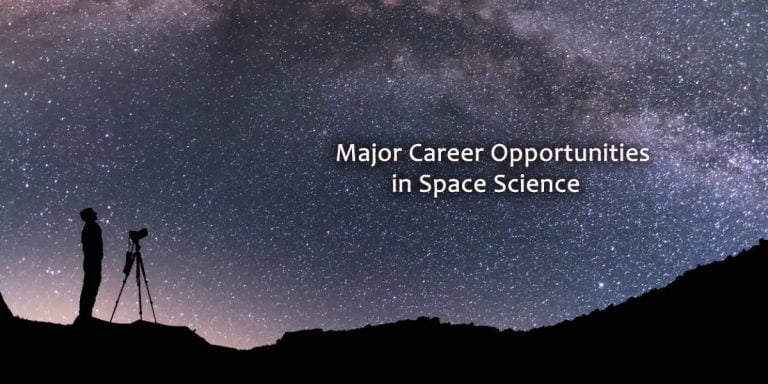There are various career opportunities in space science for those who want to learn how the universe works. Professionals in this profession perform studies and develop new theories or technology to help the general public better understand the solar system.
People in this profession can create, test, and analyze theories that help with the development of new technologies for space exploration. Their work may allow them to communicate what they learn with the general public or other scientists in their field, which can boost collaboration and corroborate a scientific idea. Career Opportunities in Space Science can also allow professionals to expand their expertise beyond their own fields. There are numerous sciences that offer prospects for space research. Let’s take a look at some of these:
Astronomy
Astronomy is the study of the universe’s planets, stars, and galaxies. Astronomers may investigate phenomena such as black holes or gravitational waves. Astronomers collect data using instruments such as telescopes to explain scientific concepts about the universe or to build new tools and technologies. Astronomy careers include the following:
Stellar astronomers: They examine the stars, their interactions, and other astronomical phenomena.
Cosmologists: The scientists who study the origins and evolution of the entire cosmos.
Atmospheric science
The study of a planet’s atmosphere and how it influences the planet’s function is known as atmospheric science. Scientists in this field analyze and interpret data to determine how a planet might evolve. They collect data and present their findings using equipment and computer programs such as satellites and graphical software. Atmospheric scientists may study variables such as the ozone layer or establish concepts such as climate change.
The examples of careers in atmospheric science are:
- Atmospheric chemists
- Atmospheric dynamists
Engineering
While astronauts receive the majority of public attention, engineers are the backbone of space exploration. They create spacecraft, launch vehicles, space stations, satellites, and other devices. Aerospace, robotics (think Mars rovers! ), computer engineering, material sciences, mechanical, and telecom engineering all have a lot of potentials.
Geology
Geology is the study of the components that comprise planets. These scientists may analyze planets’ features, such as their material structure and physical processes, using data from satellites or rovers. Other experts in this discipline may examine Earth’s properties by reviewing photographs acquired from space. Geology jobs include the following:
Geoscientists: The scientists who research the structure of the Earth and how it works.
Planetary geologists: Who investigate the structure of other planets in the solar system, as well as how they change and evolve.
Meteorology
The study of weather and climate on Earth and other planets is known as meteorology. These scientists collect data in order to create forecasts, which are reports that estimate the conditions of the atmosphere at a given period. They perform research and make conclusions using computer programs, mathematical models, or local data. Climatologists and research meteorologists are two examples of meteorology jobs.
Physics
Physics is the study of matter, energy, space, and time, as well as how they interact. These researchers may make theories about natural qualities and conduct experiments to evaluate those hypotheses. They can examine the properties of the Earth or other parts of the universe using telescopes or other tools. Examples of physics jobs include:
Plasma physicists: These researchers study plasma, which is a type of substance found in stars.
Astrophysicists: Who use physical laws to comprehend celestial objects such as stars and galaxies.
Chemistry
The study of materials and the composition of planets and celestial objects is known as chemistry. These scientists examine the interactions of atoms and molecules. They may utilize space vehicles to obtain information about planets or telescopes to analyze the composition of celestial objects. Examples of chemistry jobs include:
Analytical chemists: They explore the chemical structures of diverse substances found in distant worlds.
Astro chemists: These researchers study and analyze the chemical composition of stars and planets.
There are many additional ways to learn more about your chosen industry. Read books, watch television shows, or go to museums to learn more about the various sciences associated with space. Extracurricular activities, such as a chemical club or a space camp, may be available to further your interests. These kinds of activities can connect you with other people who are interested in space science and provide excellent networking possibilities.

